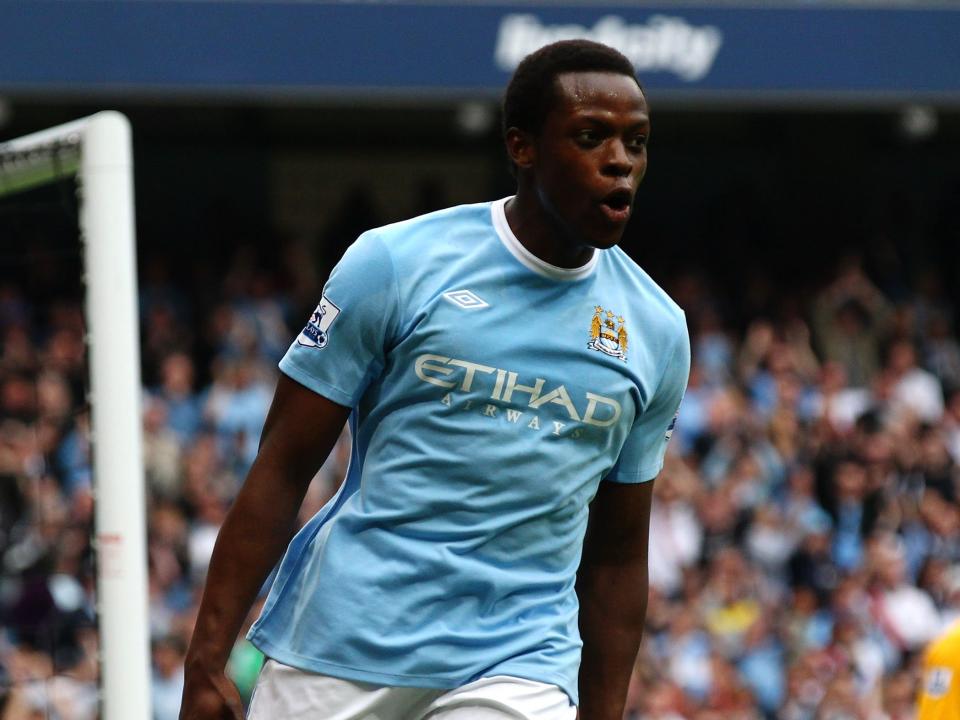Raheem Sterling: Nedum Onuoha says racism still in English football because 'people don't care'
Nedum Onuoha, the former Manchester City defender, believes racism still exists in football and wider society because “people don’t care”.
Onuoha’s comments come in light of the alleged racist abuse directed at City’s Raheem Sterling while playing at Chelsea last Saturday.
Chelsea and the Metropolitan Police are investigating the allegations and four supporters were suspended by the club earlier this week.
READ MORE: Pochettino jokes that Levy is ‘worried’ to lose him
READ MORE: Mourinho on fresh collision course with United over transfers
READ MORE: Torreira hailed as Emery’s version of Vieira and Gilberto Silva
The incident has sparked debate about racism within English football and the media’s role in its existence. Sterling himself responded by claiming that newspapers ‘fuel racism’ through negative portrayals of young black players.
Onuoha, now playing for Real Salt Lake in Major League Soccer, has told the Blue Moon Podcast that he believes instances of racial abuse are more prevalent in English football than people think.
“I think the incident with Raheem is terrible, but I don’t think it’s the only incident,” the defender, who played for City between 2004 and 2012, said.
“I think it’s the biggest one for a while because it involves a British player. This stuff goes on all the time.”
Onuoha added: “If you had a good friend and you said something to them that offended them, they’ll tell you that they’re offended and probably ask you to never say it again.
“And if you saw that it really hurt them, you probably wouldn’t say it again because you cared.

JurgenKlopp has hailed Raheem Sterling's reaction to the alleged abuse as 'brilliant' (Getty)
“So it begs the question, when people come out and say what you’re doing is wrong in terms of a race perspective, why does it keep coming back still?
“The bottom line is because people overall don’t really care. Whether it’s subtle racism or blatantly obvious racism, they don’t care.
“Some people know it’s wrong, other people will try and hurt you, some people don’t care, some people don’t even sense that it’s wrong.
“Until people are educated to feel things differently and just appreciate where we’re at in the world, then I don’t think things will change and that’s a shame.”
Sterling was praised for not reacting to the alleged abuse at the time of the incident and later said he just “had to laugh”, but Onuoha believes black footballers have little choice.
“I think one thing that a lot of people don’t realise is that when stuff like this goes on for people like Raheem, he is going to lose more than those fans are going to lose if he reacts to it,” Onuoha said.
“Even though the things that are being said to him are unfair, not right, some of it is allegedly discrimination. It’s horrible.
“If he were to say anything back, he’d be getting charged by the FA, the PFA would be speaking to him, Supporters Trusts and stuff like that would be getting at him.
“His reputation would be far worse, so he has to just accept it. That’s one of the downsides about playing the game – you can never really defend yourself.”
Onuoha, who was born in Nigeria but raised in Manchester, said he was subjected to racial abuse while playing for City's youth set-up against clubs based in other countries, though he believes attitudes are gradually changing.
"We played in a few international tournaments and some of the places we went and some of the teams we'd play, some of them couldn't speak a word of English except for being able to swear at you or say a 'n-word' to me," he said. "It was strange. I just thought to myself, 'What is this? Is this what I am? Is this what the world is?'
"In fairness, it got better over time and I think a lot of that was because people's voices started to be heard. People said they were offended and the authorities started to finally get behind them and support them instead of ridiculing them.
Onuoha added: "A lot of time it's hard to be the minority. In a group of 10, one or two people saying something, people listen to what you say - but the fact is the eight are the ones who are going to make the decision. I feel like now more people are going to listen, understand and pay attention."

 Yahoo Sport
Yahoo Sport 







































